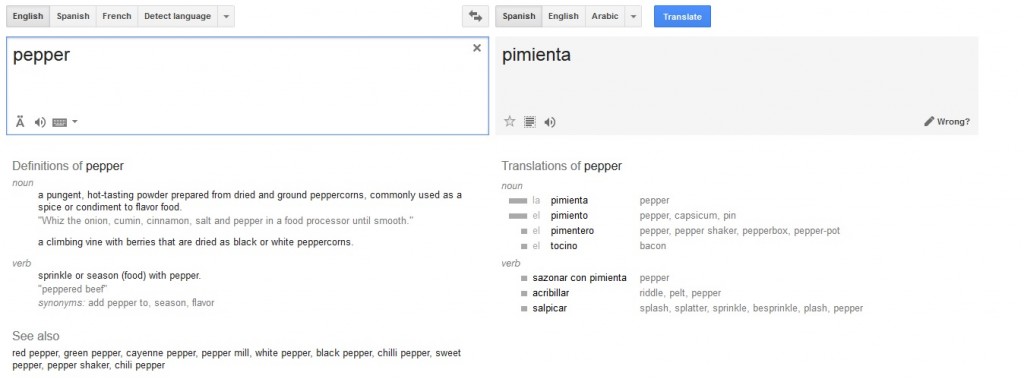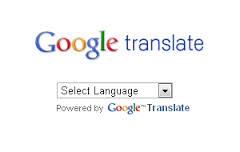Working multilingually on a daily basis, there’s no escaping Google Translate, love it or hate it. Every export team in the world knows that. So let me share with you my opinions, and my true feelings, about this tool…
Why I love Google Translate
Yes, I speak five languages, but that’s nothing to brag about. I don’t speak German, Mandarin, Hindi or Dutch, for example. I can get by in Latin America and many European countries with English, Spanish, French, Italian and Portuguese, but it would be too narrow-minded to think I’ve got the world covered.
So, I admit, I use Google Translate. Why and when?
1- When I’m a bit stuck with the languages I already speak. Bilingualism has its challenges – just because I’m fully bilingual in Spanish and English it doesn’t mean that I know every word in both languages, and I am not a translator myself. This often happens with technical terms, particularly since I work a lot with manufacturers.
2- When I want options. Just as you know that “dummy” and “pacifier” are equivalents from two different English-speaking regions, how do you know that there aren’t two variations in Spanish, too, or more? Google Translate gives me a starting point to explore these variations (I emphasise “starting point”, don’t expect more).
3- When I just haven’t got a clue. Someone posted on LinkedIn today something that looked very interesting (judging by the person posting, the amount of comments and the picture) but it was in Dutch. Global curiosity needs Google Translate or your world will be limited to the one (or five, or ten) languages you speak. It turned out that the article was about some talent contest, but hey, at least I know now…
4- When I want to write an email in the recipient’s native language and show that at least I tried. I do warn them from the start, though, that I’m using Google Translate, just in case. It works. However, if I were going to take it any further, I would either ask a native speaker or a translator for help or just switch to another language.
But I also hate Google Translate and here’s why:
1- It can get it drastically wrong. Not as often as it used to, but you really want to avoid the hassle and the humiliation.
2- It’s not that brilliant with variations within languages, something that happens a lot with Spanish across Latin America. If you’d be horrified at “fanny packs” being sold in Britain, would you want to cause a similar offence in other markets by getting the wrong translation? (by the way, I just used Google Translation to translate “fanny” into Spanish and it came up with “coño” – this would make any Latin American laugh out loud – it’s as mainland-Spain as it gets, and totally meaningless to all of us).

Not in Colombia, where a backpack is a “morral”.
Less extreme but equally meaningful examples relate for example to“concrete” (as in the material), which is called “concreto” in some countries and “hormigón” in others.

A “pepper” is actually a “morrón” in Uruguay, not any of these. Actually, I can’t see the vegetable in the definitions at all!
3- It doesn’t get irony and it doesn’t translate the tone of a conversation, so make sure that if you use Google Translate, you’re not using culturally-specific humour, just plain, straightforward language.
In the example below, we have a typical native English speaker email closing phrase of “speak later” (which means you’ll speak one day, maybe, maybe not, definitely not at any precise time) and it’s been translated as a command, you’re literally asking the other person to speak later (it sounds like “you, speak later to me, this is an order”). Ouch.

4- What annoys me the most is the reliance on Google Translate for websites. Just because you have a drop down menu of languages doesn’t mean that your website is multilingual and even less so, international or multicultural. I personally hate this tool. You either invest in translating your website professionally, or you leave it to your reader to use Google Translate at their discretion and risk, but incorporating this annoying little tool totally damages my opinion of a website:

So what’s your opinion? When would you use Google Translate and when would you totally avoid it?
